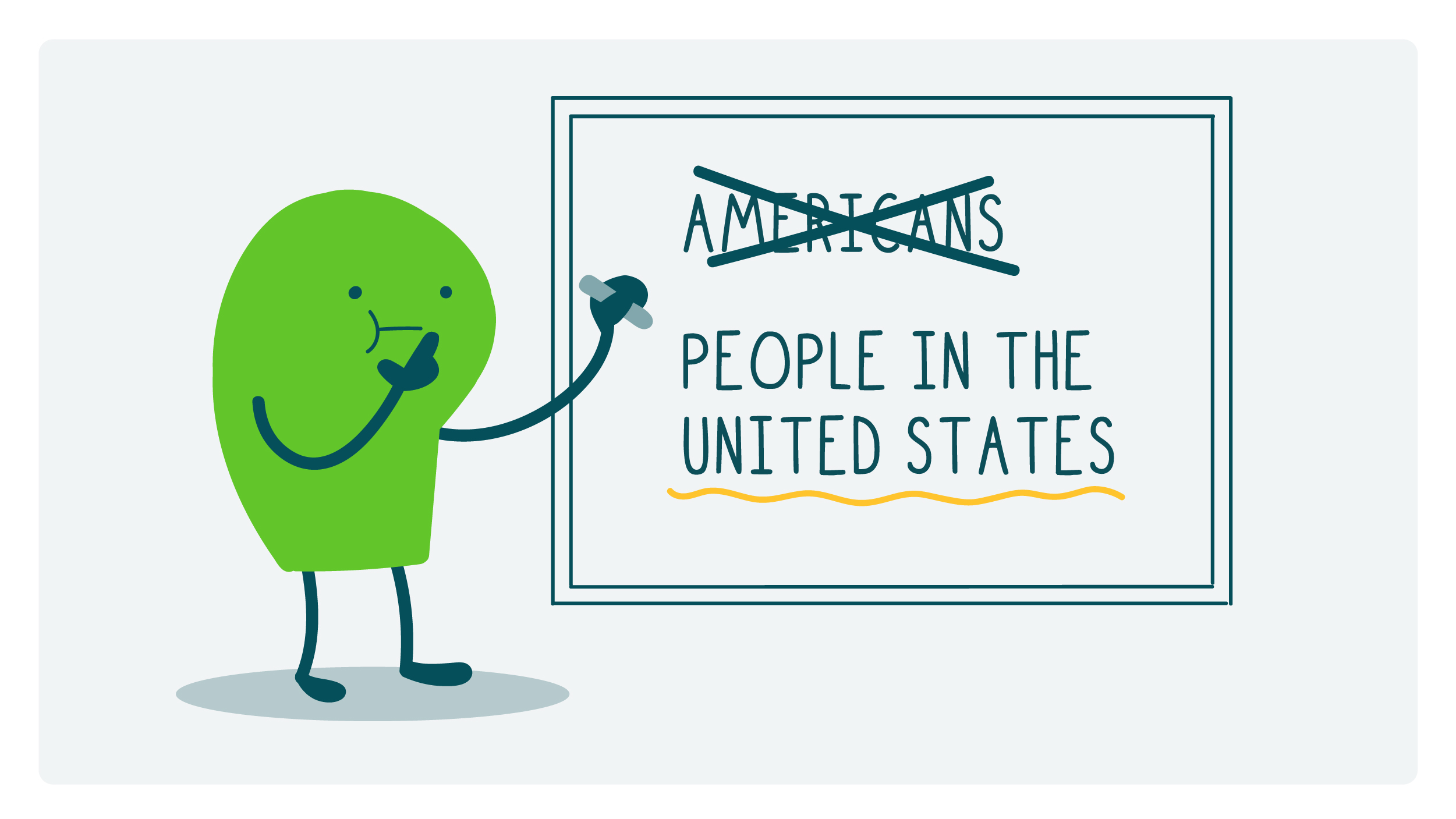
Today, we invite you to ponder one of the great traditions of American vernacular with us. And then, dear readers, we invite you to… (mostly) stop using it in your health comm materials! As you may have guessed from the title, we’re talking about using the term “Americans” to refer to people living in the United States. Alas, turns out that a time-honored tradition among Presidents addressing the country is somewhat less appropriate in health communication.
The “why” here is pretty straightforward: The term “Americans” doesn’t include everyone who lives, works, and engages with the health care system in the United States. There’s a huge group of people (more than 14 million back in 2015) who live in this country as permanent residents or visa holders — and who are not American citizens. And then there are the people who are in the United States without official documentation — and who also deserve clear, accessible health materials that speak to them and meet their needs.
By being intentional with our word choices, we can make sure we include everyone, regardless of their citizenship status. So instead of “Americans” — and depending on the context — consider terms like “people in the United States,” “U.S. adults,” or even simply “people.”
And yes, you may wind up using “Americans” occasionally. It tends to show up in lots of federal public health initiatives, for example. But if you have a go at avoiding it, we think you’ll find it’s pretty easy to do. And when a pretty easy language swap can help more people feel seen and included in health comm… well, we don’t have to tell you!
The bottom line: Unless you’re the President of the United States, you probably don’t need to use the term “Americans” in your work. Instead, consider more inclusive alternatives.
Copy/paste to share on social (and tag us!): According to CommunicateHealth, it’s time to (mostly) ditch the term “Americans” in #HealthComm. Check out this post for more inclusive options: https://communicatehealth.com/wehearthealthliteracy/our-fellow-americans/ #HealthLiteracy #InclusiveLanguage
Browse recent posts